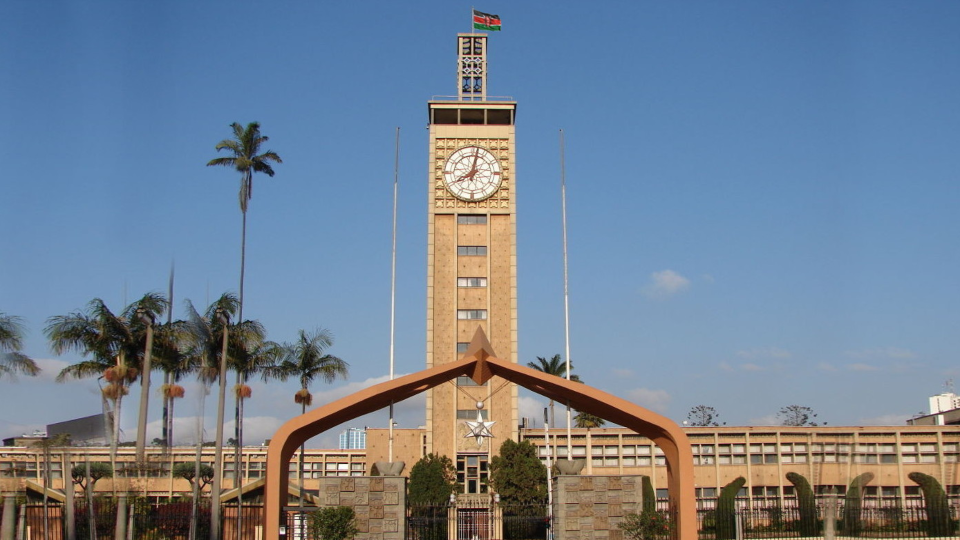High Court Halts Constitutional Amendment Bill to Entrench Three Funds
The High Court in Nairobi has issued a significant ruling that barred President William Ruto from assenting to the Constitution of Kenya (Amendment) Bill, 2025. The bill, which sought to entrench three key funds into the Constitution, was halted pending further judicial review. The decision, delivered by Justice Lawrence Mugambi, marks a critical development in the ongoing debate over the constitutional anchoring of the National Government Constituencies Development Fund (NG-CDF), the Senate Oversight Fund (SOF), and the National Government Affirmative Action Fund (NGAAF).
The ruling came in response to a petition filed by the Katiba Institute, a prominent civil society organization focused on constitutional governance. The institute challenged the bill on grounds of constitutional violations and unnecessary public expenditure, arguing that the proposed amendments did not adhere to the legal thresholds required for altering the Constitution. Specifically, the petition highlighted concerns about the process of public participation and the financial implications of entrenching the funds.
The Constitution of Kenya (Amendment) Bill, 2025, sponsored by Members of Parliament Otiende Amollo and Samuel Chepkonga, aimed to secure the legal status of the NG-CDF, SOF, and NGAAF by embedding them in the Constitution. The NG-CDF, widely known for funding local development projects across Kenya’s 290 constituencies, has long been a cornerstone of grassroots development. The SOF was proposed to enhance the Senate’s oversight role, while the NGAAF focuses on supporting marginalized groups through affirmative action initiatives. Proponents of the bill, including MPs, argued that entrenching these funds would protect them from legal challenges and ensure their continuity.
However, the Katiba Institute’s petition raised several objections. The group argued that the process leading to the bill’s advancement failed to meet the constitutional requirements for public participation as outlined in Article 256 of the Constitution. This article mandates that any parliamentary initiative to amend the Constitution must involve robust public consultation. The institute contended that the public participation exercise, conducted between May 5 and May 7, 2025, across all 290 constituencies, was insufficient and did not adequately capture public input.
Additionally, the petitioners expressed concerns about the financial burden of the proposed amendments. They argued that entrenching the funds would lead to significant public expenditure without clear justification, especially at a time when Kenya faces economic challenges. The Katiba Institute sought not only to halt the bill’s progression but also to compel the judiciary to appoint a multi-judge bench to thoroughly examine the matter. They further requested a directive requiring Parliament to pass a referendum law before advancing any constitutional amendments affecting entrenched provisions.
Justice Mugambi’s ruling specifically prohibits the National Assembly from forwarding the bill to President Ruto for assent until the court hears and determines the Katiba Institute’s application, originally filed on May 2, 2025. The decision builds on an earlier ruling by Justice Mugambi on June 5, 2025, which allowed Parliament to debate and transmit the bill to the Senate but barred it from proceeding to the presidential assent stage. This latest order reinforces the court’s cautious approach to constitutional amendments, emphasizing the need for strict adherence to legal and procedural standards.
The bill’s journey has been contentious. On May 21, 2025, the High Court initially declined to stop Parliament from forwarding the bill to the President, allowing debates to continue. However, the Katiba Institute’s persistent legal challenges culminated in the September 18 ruling, which has effectively stalled the process. The National Assembly, led by Speaker Moses Wetang’ula, had emphasized compliance with Article 256, underscoring the importance of public participation and bicameral approval for constitutional amendments. Despite these efforts, the court’s intervention highlights ongoing concerns about the transparency and inclusivity of the process.
The ruling has sparked varied reactions. Supporters of the bill, particularly MPs who rely on the NG-CDF for constituency projects, expressed disappointment, arguing that the funds are critical for local development. Critics, including civil society groups, hailed the decision as a victory for constitutionalism and accountability. The Katiba Institute, in a statement following the ruling, reiterated its commitment to ensuring that any constitutional changes adhere to the principles of public participation and fiscal responsibility.
This development adds to a series of legal setbacks for President Ruto’s administration. In recent months, the High Court has issued orders halting other initiatives, including a multi-agency anti-corruption team and a compensation plan for victims of protests. These rulings underscore the judiciary’s role as a check on executive and legislative actions, particularly in matters involving constitutional amendments.
As the case awaits further hearing, the fate of the NG-CDF, SOF, and NGAAF remains uncertain. The court’s directive for a multi-judge bench signals that a comprehensive review of the bill’s constitutionality is forthcoming. For now, Justice Mugambi’s ruling ensures that President Ruto cannot assent to the bill, preserving the status quo until the judiciary resolves the legal questions raised by the Katiba Institute.


